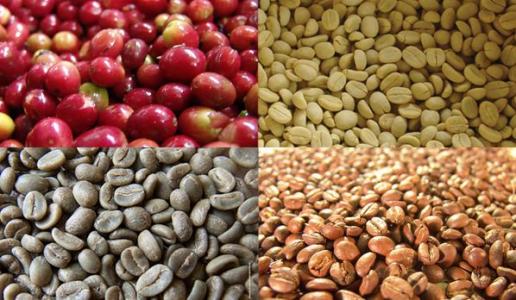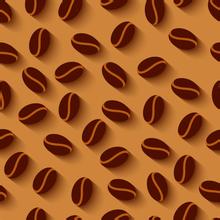Flavor and taste of Leonardo coffee beans treated with Costa Rican black honey
Flavor and taste of Leonardo coffee beans treated with Costa Rican black honey
Once the fermentation is complete, the coffee with the endocarp enters the flushing channel and is washed away by a large amount of water.
Clean coffee with endocarp enters the drying process, and at this stage, there are a variety of drying methods: direct sunlight, combination of sun drying and machine drying, combination of shade drying and sun drying, and so on. It usually takes 10 days to a month to keep the moisture content stable at about 12%.
The light time of raw coffee beans treated with yellow honey was the longest. Longer light means higher heat, so the coffee can be dried within a week. In general, the drying time of coffee depends on the local climate, temperature and humidity.
The drying time of raw coffee beans treated with red honey is 2-3 weeks, usually due to weather or placed in a dark place. If the weather is clear, the grower should block part of the sun to reduce the sunshine time.
The coffee beans treated with black honey were left in the dark for the longest time and the shorter the light time. The drying time of this coffee is at least 2 weeks. The black honey treatment of raw coffee beans is the most complex and the labor cost is the highest, so the price is the most expensive.
1. The temperature of the whole country is too high, the beans at the beginning of the second explosion are easy to lose their flavor.
two。 Shallow baking can retain the sour aroma to the maximum extent.
3. This baking degree does show sweetness. (after raising beans for 2 days, I tried two cups of French pressing pot, which showed outstanding sweetness.)

Important Notice :
前街咖啡 FrontStreet Coffee has moved to new addredd:
FrontStreet Coffee Address: 315,Donghua East Road,GuangZhou
Tel:020 38364473
- Prev

The processing method of Yunnan Tieka Coffee beans description of Flavor of varieties produced by Grinding scale
Yunnan Tieka coffee bean processing method grinding scale variety flavor description of the variety, also known as the old variety of small-grain coffee, its yield is less, cultivation is difficult, so the price is much higher than ordinary small-grain coffee. Tibica coffee, native to Ethiopia and southeastern Sudan, is the most widely cultivated variety of coffee in the Western Hemisphere. The plants are strong, but not light-resistant, in Hawaii.
- Next

Brief introduction of Yunnan small Coffee planting Technology how to brew Brand Taste and Flavor
A brief introduction to the description of how to brew the brand taste and flavor of Yunnan small-grain coffee planting technology Pu'er 's Yunnan Coffee Trading Center is located in the main coffee producing area in China, and its trump card is close to coffee producing areas. it is understood that in recent years, the local coffee industry has been vigorously developed. regard it as an important support for the construction of a national green economy test and demonstration zone, an important part of the development of agriculture with plateau characteristics, and driving farmers.
Related
- Detailed explanation of Jadeite planting Land in Panamanian Jadeite Manor introduction to the grading system of Jadeite competitive bidding, Red bid, Green bid and Rose Summer
- Story of Coffee planting in Brenka region of Costa Rica Stonehenge Manor anaerobic heavy honey treatment of flavor mouth
- What's on the barrel of Blue Mountain Coffee beans?
- Can American coffee also pull flowers? How to use hot American style to pull out a good-looking pattern?
- Can you make a cold extract with coffee beans? What is the right proportion for cold-extracted coffee formula?
- Indonesian PWN Gold Mandrine Coffee Origin Features Flavor How to Chong? Mandolin coffee is American.
- A brief introduction to the flavor characteristics of Brazilian yellow bourbon coffee beans
- What is the effect of different water quality on the flavor of cold-extracted coffee? What kind of water is best for brewing coffee?
- Why do you think of Rose Summer whenever you mention Panamanian coffee?
- Introduction to the characteristics of authentic blue mountain coffee bean producing areas? What is the CIB Coffee Authority in Jamaica?

